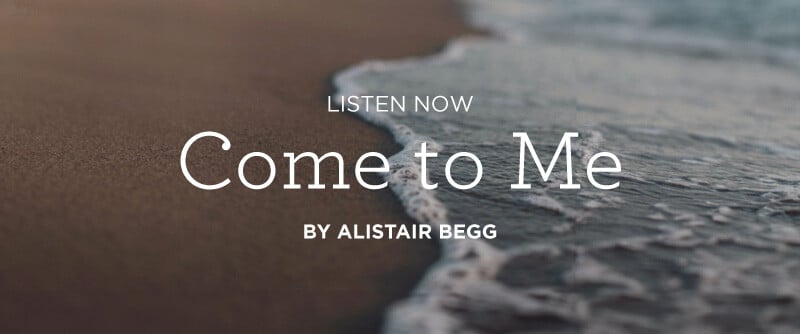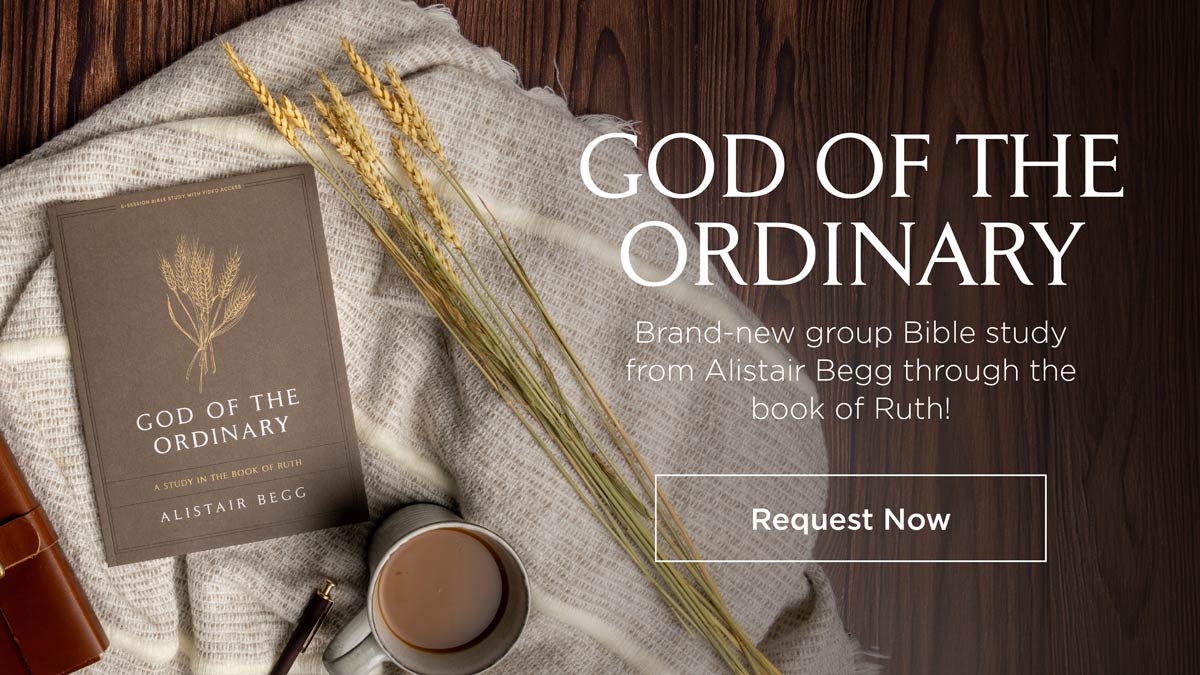The notion of self-defined morality has become entrenched in contemporary Western culture. The world often invites us to freedom on our own terms, and it has peddled that idea everywhere from Supreme Court decisions to viral Disney lyrics (“No right, no wrong, no rules for me; I’m free! Let it go!”) Against this backdrop, the invitation that Jesus makes in Matthew 11:28–29 is strange. He begins promisingly: “Come to me, all who labor and are heavy laden, and I will give you rest.” Then it’s almost as if—to modern sensibilities, at least—He goes awry: “Take my yoke upon you.” How can a yoke offer rest? Jesus, after all, is the one who casts off the yokes of slavery and oppression, of obligations and burdens set upon us by others—isn’t He? But the Bible offers a different, deeper, more wondrous story about freedom and its meaning. A yoke is a wooden frame placed across the shoulders to distribute the weight of a burden. It is a symbol of heavy labor most readily associated with animals, though human laborers also have used them—particularly slaves, whose social position could be summed up metaphorically by the phrase “under a yoke” (1 Tim. 6:1; see also Isa. 10:27; 58:6). Jesus preached to people who were under the authority of scribes and Pharisees. As He says in another place, those leaders “tie up heavy burdens, hard to bear, and lay them on people’s shoulders” (Matt. 23:4). The yoke serves as a metaphor for the man-made religious obligations laid on the people, which Jesus characterized as a kind of slavery. Yet Jesus does not invite people to a life without a yoke. Instead, He says, “Take my yoke upon you,” adding, “Learn from me, for I am gentle and lowly in heart, and you will find rest for your souls. For my yoke is easy, and my burden is light” (Matt. 11:29–30). In other words, the yoke which Jesus lays on His followers doesn’t chafe. It doesn’t burden. It doesn’t oppress. And yet it is a yoke. “If you abide in my word,” Jesus said elsewhere, “you are truly my disciples, and you will know the truth, and the truth will set you free” (John 8:31–32). Obedience to the Word of God, He says, will free us. In this, He is echoing what the Old Testament Scriptures had already revealed—that is, true freedom comes not through self-made doctrines but through obedience to God: I will keep your law continually, To this someone may object, “But I am not under the authority of scribes and Pharisees! I have no yoke at all. Why should I take one from Jesus?” The apostle Peter warns us of false teachers who tell people they can live without a yoke—that they can live how they want and do what makes them happy: “They promise them freedom, but they themselves are slaves of corruption.” If these false teachers spurn the rules laid on them from outside, in what sense are they slaves? Peter tells us: “For whatever overcomes a person, to that he is enslaved” (2 Peter 2:19). This is the principle summed up so memorably by Bob Dylan: You’re gonna have to serve somebody. Whatever is the epicenter of a person’s life, the bottom line, the thing they cling to when everything hits the fan, that is what has mastered a person. The notion of freedom as an absence of all restriction is an illusion. It is only slavery in a convincing mask. The generation coming of age in America has grown up with the message that they should “let it go,” that they should be free to determine their own truth, that there is no one in charge, no one who can judge them. And what has been the result? According to one survey, they report the least positive outlook and the highest prevalence of mental illness of any generation. … This pessimism is fueled by growing global unrest, wars and disruptions, financial crises, and educational interruptions due to the COVID-19 pandemic. Feelings of “climate anxiety” are also widely reported. That is not a picture of freedom. It is a painful, heavy yoke. True freedom can only be understood with reference to these words: “Take my yoke upon you.” In Jesus, we don’t have the right to behave however we want. We don’t have the right to believe whatever we want. We are not free from responsibility to God and to others. No, true freedom is found in the good obligations that Christ lays upon us—a burden that is not oppressive but, in the light of redemption and the power that the Holy Spirit gives us to obey, is easy and light. Many will understand this paradox from marital experiences. When love drives a person to make a commitment, they willingly and happily submit themselves to the obligations that make all the richness of loyal love between a man and a woman possible. There is a freedom that is only known in the trust that two people feel when they have made solemn promises to one another. Jesus Himself gave up His freedom to set us free from slavery to sin and from the just judgment of God. The Eternal Son humbled Himself by taking the form of a slave, going even to the point of death (Phil. 2:6–8), so that He could pay the penalty for sin and invite us into the family of God free from guilt and the prison of self-centered meaninglessness. The freedom that Jesus invites us to is paradoxical. To be myself, I have to deny myself. To be free, I have to give up my freedom. To live, I have to die to myself. To find myself, I have to lose myself. George Matheson captured this well in his hymn: Make me a captive, Lord, As you navigate the complexities of life, embracing the yoke of Christ offers a path to true freedom and rest, grounded in His love and truth. Take a moment, then, to reflect on the yoke you are wearing. This article was adapted from the sermon “Obligation” by Alistair Begg.
The Meaning of the Yoke
True freedom can only be understood with reference to these words: “Take my yoke upon you.”
forever and ever,
and I shall walk in a wide place,
for I have sought your precepts. (Ps. 119:44–45)Our Illusory Freedoms
Well, it may be the devil, or it may be the Lord,
But you’re gonna have to serve somebody.The Paradox of Biblical Freedom
To be myself, I have to deny myself. To be free, I have to give up my freedom. To live, I have to die to myself. To find myself, I have to lose myself.
And then I shall be free.
Force me to render up my sword,
And I shall conqueror be.
I sink in life’s alarms
When by myself I stand;
Imprison me within Thine arms,
And strong shall be my hand.

Copyright © 2025 , Truth For Life. All rights reserved.
Unless otherwise indicated, all Scripture quotations are taken from The ESV® Bible (The Holy Bible, English Standard Version®), copyright © 2001 by Crossway, a publishing ministry of Good News Publishers. Used by permission. All rights reserved.











 English (US) ·
English (US) ·